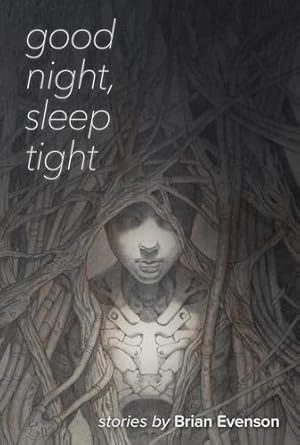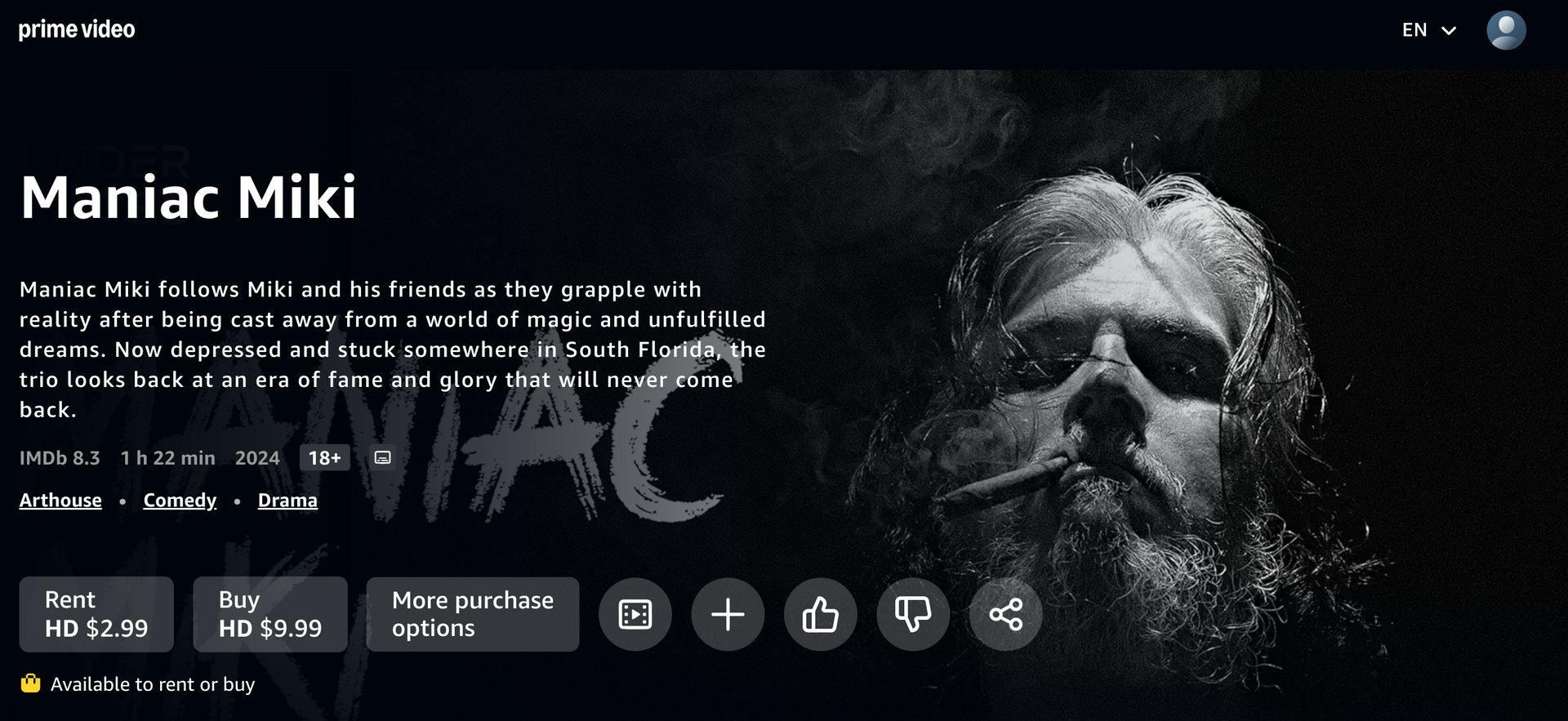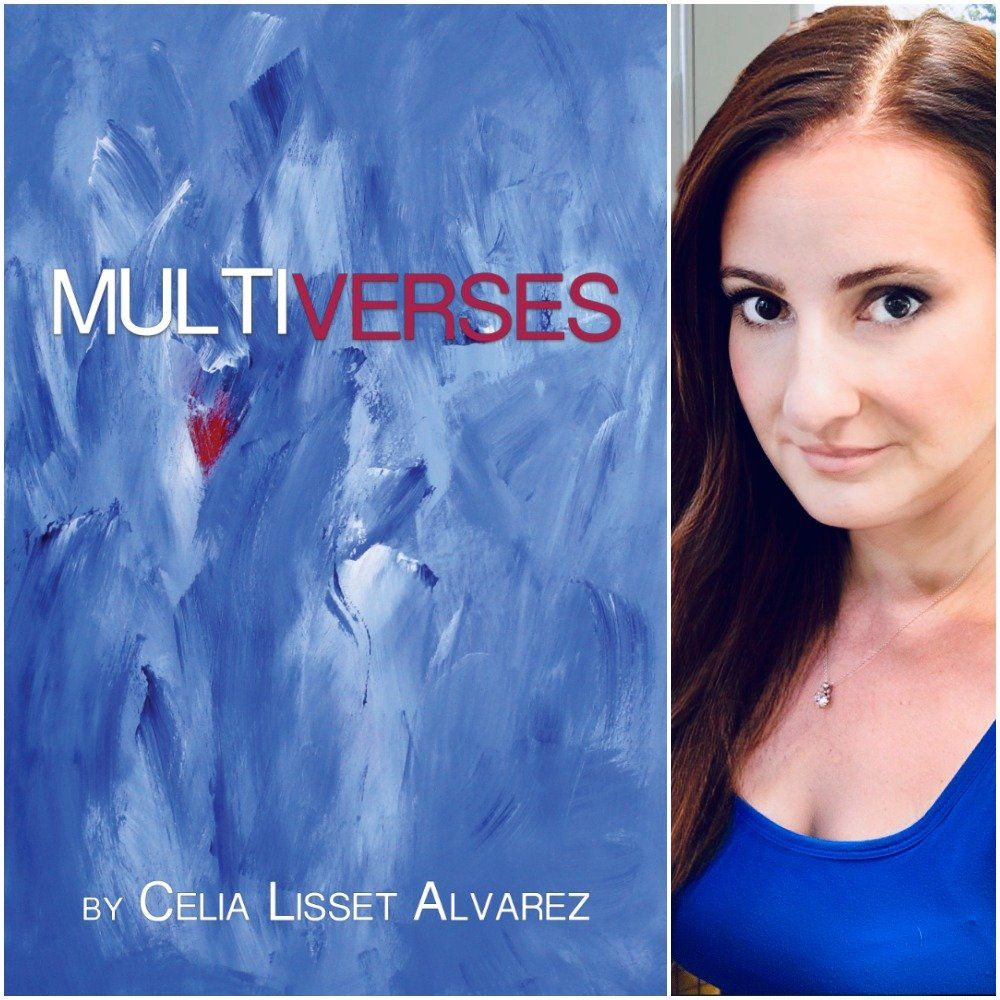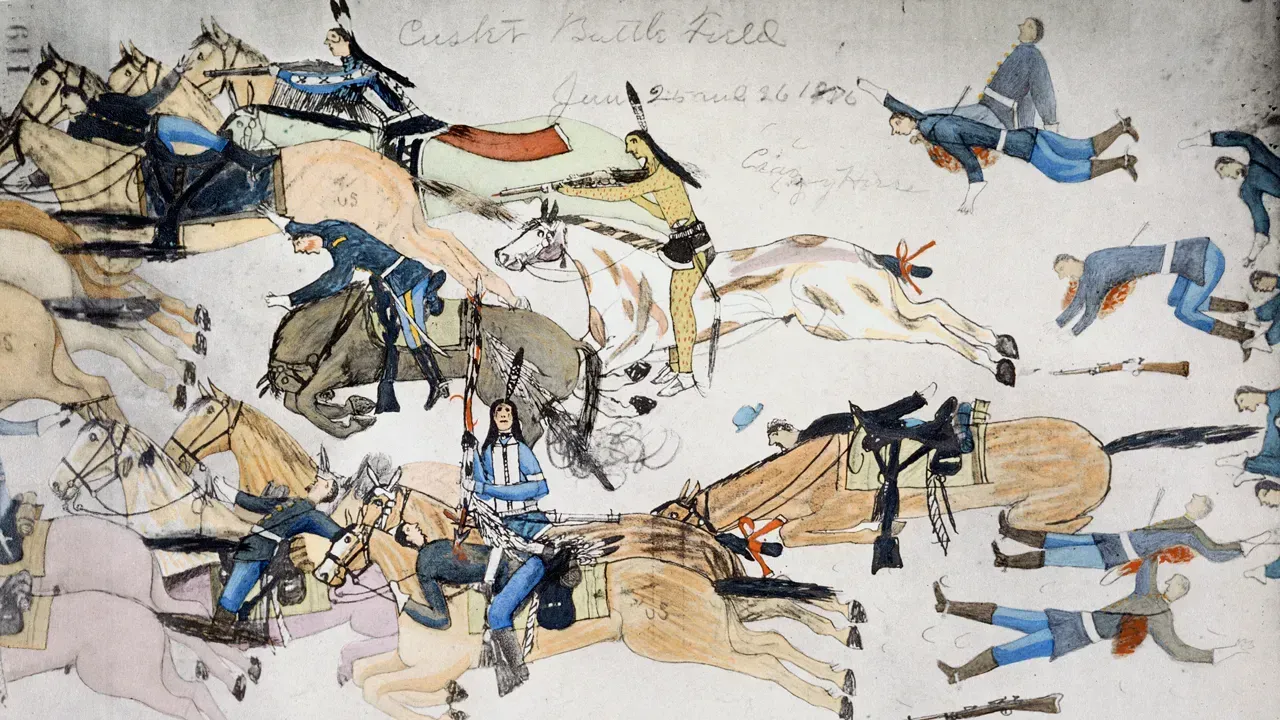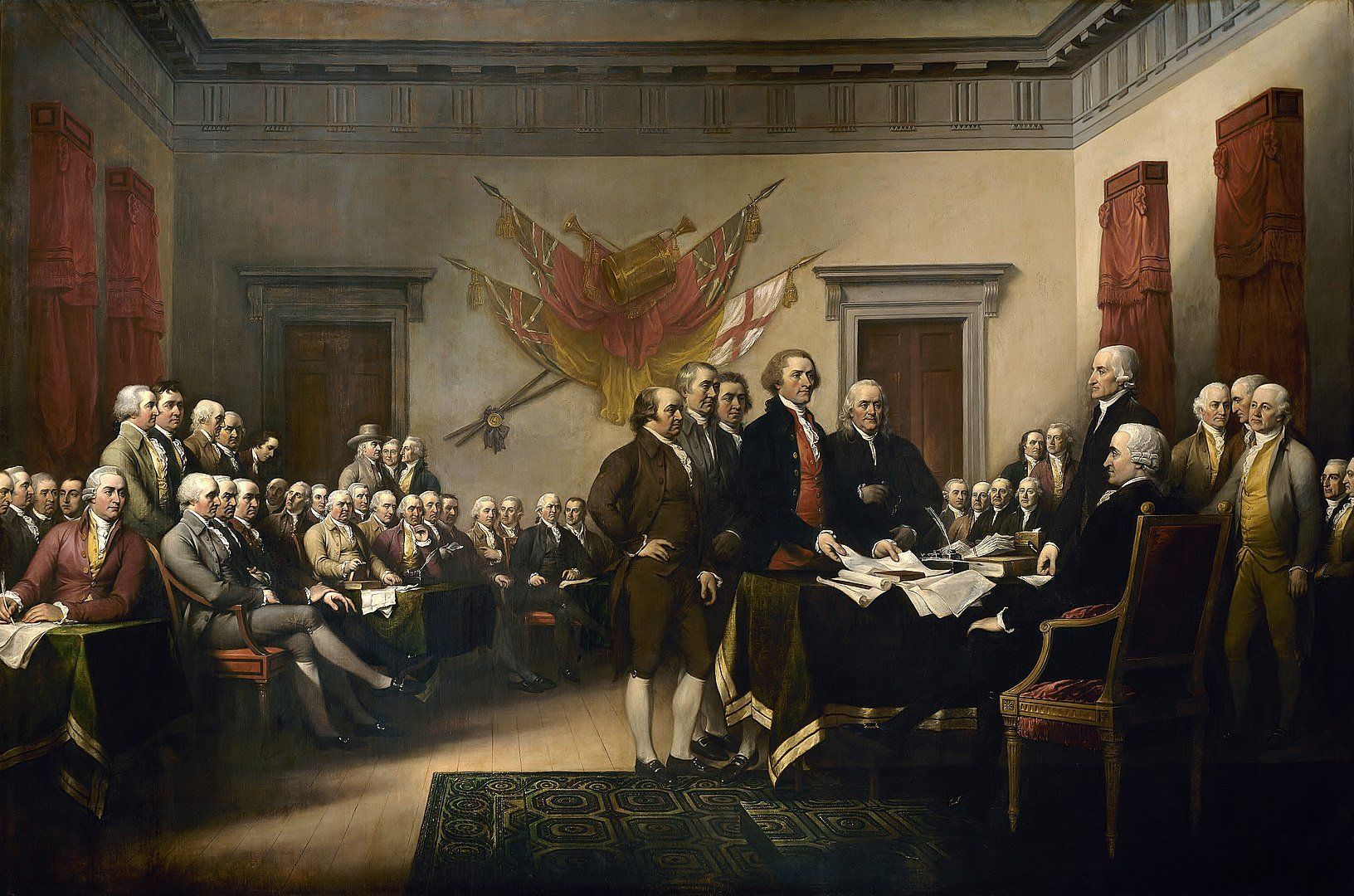Chaz Mena’s “Yo Solo” takes Gálvez to a wider audience
From The Pensacola Digest, May 22, 2012 Interview by Joe Vinson Last May, Chaz Mena performed “Yo Solo: A Visit with Bernardo de Gálvez” at the Saenger Theatre, a one-man show about the Spanish general and viceroy who besieged British […]
From The Pensacola Digest, May 22, 2012
Interview by Joe Vinson
Last May, Chaz Mena performed “Yo Solo: A Visit with Bernardo de Gálvez” at the Saenger Theatre, a one-man show about the Spanish general and viceroy who besieged British Pensacola in 1781 and ultimately changed the course of the American Revolution. It was the culmination of a year of research for the New York-based actor and Florida Humanities Council scholar.
This past January, Mena returned to Pensacola to record a version of the Gálvez show at WSRE, to be edited into a PBS-formatted TV program. Since then, Gálvez has been named a “Great Floridian” by the state, and his award was recently presented to the T. T. Wentworth Museum. This past Sunday, around 250 people — most of whom were involved in the production in some form — gathered at the Jean & Paul Amos Performance Studio for a preview showing of the finished program.
“Yo Solo” will be released on July 2 and air locally on WSRE and on other PBS affiliates in Florida and the region. (It will be submitted for consideration by national PBS, though Stringfield said it’s very difficult to get a show on national PBS, “so don’t hold your breaths there.”) The program will also be made available to Florida teachers, along with a comprehensive packet of educational materials, to incorporate Gálvez into their history curriculum. In addition, DVDs will be taken on a delegation to Spain at the end of June and presented to both the King of Spain and the mayor of Gálvez’s hometown, Macharaviaya.“It’s going to be a story that tells us about our past and also tells us, in many ways, who we are as Floridians,” said Margo Stringfield, the UWF archaeologist and Florida Humanities Council board member who spearheaded this project. “And we’re bringing this out because we want people to be prepared for what’s happening in 2013, when we celebrate 500 years of Florida history.”
Mena was kind enough to sit down with me after the January recording session and discuss the production. We had such a good conversation, it’s taken me these four intervening months to transcribe it all.
Tell me a little about the project.
The project goes back about a year now, a little over a year. The University of West Florida Archaeology and Anthropology Departments asked me if I’d be interested in doing this type of one-person treatment on Bernardo de Gálvez and how his life culminated with the taking of Pensacola from the British. The historical importance of that particular battle is that the clock starts to count down to Yorktown, to the end of the war — or the inception of our republic — from the point at which Pensacola was taken from the British. Because then that frees up the Gulf and the whole Caribbean for the allies, which were at that time the French, the Spanish, and the navies of the different colonies, as well as the Continental Navy, to kind of sail up and down the east coast and into the Gulf with impunity. It was the last big bastion of British power in the Gulf, and the Gulf became again a Spanish lake, or an allied lake, and by extension an American lake. And that moment on, you can also say another clock was started, and that’s the clock that ended up with Florida becoming a state in 1821.
This was your third such role. Can you tell me about the other two, and how you got started?
The first two… I’m a scholar with the Florida Humanities Council, and I’ve been living in New York City for about fifteen years, making a living as an actor there, as well as blogging and stuff like that, but mainly as an actor. My own personal career stems back to 1996, when I graduated from grad school, I worked in major theaters around the country, off Broadway, in a number of films — big roles in small films, small roles in big films, a lot of independent films, a lot of commercials — you know, all the stuff that actors have to do. The lucky ones. I have to knock on wood, because I’ve been able to clothe myself and have somewhat of a life doing this, but it’s always a struggle as an actor.
So I decided, how neat would it be to write your own play and generate your own work? So it kind of worked hand in hand with what the Florida Humanities Council was looking for. They were looking for a scholar and researcher, and I had always done research for my own work. And I love writing, so it was kind of a perfect fit.
My first play was about José Martí, a 19th century Cuban poet and political figure and arguably one of the most important men to come out of this whole hemisphere. Simon Bolivar, Franklin, Washington, Jefferson, Benito Juarez, José Martí, and Abraham Lincoln of course… these are all mentioned in the same breath. So it’s a tall order to come up with a show. Because it’s the Florida Humanities Council I had to find some kind of Florida link to Martí, and there were plenty, because he made over forty trips to Tampa, and Tampa became the place where the Cuban independence movement was born. The cigar that dealt the signal to start the revolution — the “Paul Revere of the Cuban revolution” — was written as an order and rolled up in a cigar and sent to Cuba from Tampa. And all of that was Martí’s thinking and ideas. On top of being a major poet and journalist of the day, he was also a revolutionary, so he wore a lot of hats.
That was successful, and then they asked if I’d be interested in doing a similar show about Pedro Menéndez de Avilés, who was the first governor — actually the title was adelantado, which was a Spanish word which meant “substitute for the king,” or “the king’s forward man,” literally. We would call him a governor, but in Spain it has a different kind of nomenclature. He founded St. Augustine, which is, you know, our oldest continuous city in 1565.
That’s a bit of a sensitive topic around here.
Not the first city, but the oldest continuous city. Pensacola just got a bad stroke of luck with that hurricane in 1559. Otherwise Pensacola would have been the oldest city.
Who doesn’t unpack their ships, you know?
Tristán didn’t do that because he couldn’t really trust the environs. He hadn’t done enough of his homework, I think. In fact, Pedro Menéndez had an interview with Tristán de Luna in what is today the Dominican Republic, at that time Santo Domingo, to see how to approach this colony that he had accepted from the king.
So they owe us, is what you’re saying.
Yes! The brainchild of St. Augustine goes back to Tristán de Luna and his failure. He was a depressed man, an interesting man, Tristán de Luna. Someone should do something about that, about chronicling his life. So “Pedro Menéndez” has been vastly, vastly successful, thank goodness, and Margo Stringfield from the University of West Florida saw it, and she was on the board of the Florida Humanities Council, and she thought it was a good fit to see if I’d like to come in and either do a treatment on Tristán de Luna or Bernardo de Gálvez, and they opted for Bernardo de Gálvez, and I’d say that was about fourteen, fifteen months ago, and here we are.
We performed it at the Saenger to a huge audience, great fanfare and success. I’ve since done different drafts of it for schools and stuff like that. But last night [January 21] was important because last night we actually put it to tape, high definition. And the idea is to sell it, to give it a more national spin. And to that I worked — the script that was performed at the Saenger was not entirely what was filmed yesterday. I wanted to make it certainly about the Battle of Pensacola and about this very very very resourceful Spanish officer and freedom-lover, but to gear it towards more of a national audience.
Because of the impact on the American Revolution.
Which is sizable. The Spanish contribution to aid our Continental armies and navies rivaled — and some sources say bettered — the French contribution, which is amazing. There’s a good book written by Thomas E. Chávez. He’s a master historian, and the book is called Spain and the Independence of the United States: An Intrinsic Gift — as it was.
Clearly you did an enormous amount of research into all these figures.
Yes, yes. I should mention that here at the University of Florida, Special Collections, which is all things Gulf-related and phenomenal. Really world class. It’s fantastic. You could spend lifetimes down there rifling through the primary and secondary [sources]. Dean Debolt is fantastic. I worked very closely with Dean, and he’s something else.
So, not only do you have to know all the facts — numbers, dates — but for your role you need to find the personality of the figure and things that aren’t as easy to see in historical documents alone.
I kind of come to that as a default because of my training. My background is dramatic arts. But I also have a degree in English and have done a lot of research. I’m one of those chaps that like to really do his research work, when it’s a play or not. Whenever I do a play I find out: when does the play take place, what were the seminal economic and political forces going on in that setting, who these people might be, what forces kind of contributed to who they became — I’m talking about the character in the play — what conditional forces were there to kind of create this person, and maybe get an idea of why a person is a certain why. And then of course I like to read other plays that the author, the playwright has written, and see why he choose this play. None of which has anything to do in the playing of it, but certainly as you rehearse, I’m of the belief that the more research you do, you can make more informed acting choices.
But you can also get stymied. You can say stupid things like, “My character wouldn’t do that. He’s a Prussian officer of the late nineteenth century, he wouldn’t say that.” Well, yes, he would say that, because the author decided he should say that. Do you know what I mean? So you can get kind of silly about it too. That’s why it’s important to know why the author wanted to write this play.
Am I correct that you’re of Cuban descent?
My parents are Cuban.
Did having a grasp on Spanish help you in reading some of the historical documents?
No. Well, yeah. I mean, I also read French. My Spanish is probably better than my French. I can write pretty passably well in Spanish. My French is… I get stuck on the spelling, on the orthography. Because in Spanish everything’s so uniform. It’s a phonetic alphabet — one sound, one symbol. Not so in English. How many different ways do we say “A”? And in French the same thing. But the more reading I do in French, the better I get. And I do read in French. I read the dailies, La Monde especially, it’s an excellent newspaper.
I’m talking about, like, a lot of the old letters…
Yeah, the letters were written in French. A lot of the letters were written in French.
I didn’t realize that.
Well, it made sense. He was coming into what was once a French province, now he was the Spanish governor. But the people still spoke French and related to each other in French. A lot of the primary sources — the letters, the private letters to his officers in Louisiana — were in French. However, whenever he would write to Cuba, it was in Spanish. So it’s good to know both languages.
We speak English here because of the French and Indian War, really. The English had very small, small colonies. They were just basically littoral, up against the sea, and that’s it. The rest was Spanish and French. But the English in 1763 defeat the Spanish and French, and by conquest of war, they take in this whole continent, virtually, which is then again lost after the Revolution, except for Canada. Canada of course remained within the English sphere of dominions.
Most people in Pensacola, I hope, know Gálvez from the Battle of Pensacola and…
You’d be surprised how many people don’t. I’ve been asking. Whenever I go to a place I go, “Hey, by the way, do you remember…?” I bought some flowers for some friends here, and I went to [redacted] and I asked, and nobody knew. But the one person in the back came out and said, “Oh, my daughter’s in middle school, and I know all about Bernardo de Gálvez!” So I thought that was kinda cool. But nobody else, at all, knows, and that’s what we’re trying to remedy, because it’s important. It’s important. It really is. I mean, he’s as important to the American Revolution as Lafayette. Everybody knows about Lafayette and von Steuben, but Gálvez’s contribution has more lasting influence than any of those two men. I mean, by far.
The Battle of Pensacola was punctuated by the powder explosion, but what were some other things that stuck out to you as highlights of that campaign?
Well, Gálvez’s army would’ve looked like what our army looks like now. People of every color, shade, and economic station. Pretty damn democratic army in that sense. I mean, we’re talking about a European, monarchical army, so let’s not kid ourselves. This is not a republic, no. But certainly from the outside it looked like that, and the Spanish army was vastly more humane than the British army that used to flog people arbitrarily, and their soldiers were treated likeuntermenschen. Like second-class, third-class citizens — I mean, it was the rabble that would go into there. And the French and Spanish weren’t necessarily like that. Certainly the Spanish army wasn’t like that, because you had professional soldiers that came to fight here.
You had over 2,000 Cubans that made up two regiments from Havana. Well, one regiment, the permanent regiment from Havana, which was professional, and then you had a Cuban militia that was semi-professional. But certainly by the time of the end of the war, they were pretty good. They were as good as any European army that was in the field. Much like Washington’s army became pretty good — the Continental Army, not the militia. You had regiments from the Canary Islands come over. You had a cavalry regiment from Mexico. Mexicans fought here! You know, those people who mow the lawn now and we want to kick out of the country? Yeah, they were here. You had free negro regiments. You also had volunteers who were erstwhile slaves, and they were promised their freedom afterwards, and for very few of them was the promise held. They were forced back into slavery, a lot of them. This is after Gálvez’s death, of course. Otherwise he would’ve followed up on it.
By all intents and purposes, he was pretty caring as an officer and also as a governor. Wherever he officiated, he really had an idea of “the people.” I mean, just to have an idea, just to refer to “the people” as a true estate of a country, that was revolutionary. And he was very much a child of the Enlightenment and very inspired by our forefathers and foremothers.
So the army was a professional army. They were pretty well fed. They didn’t have enough cannon. They ran out of cannons fast, so Gálvez was paying — I’m not sure, I think it was sixteen, fifteen pesos per spent cannonball. So you had all these soldiers picking up these hot cannonballs: “Phew, ah, hot, take this one! Put me down for one!” You know what I mean? They were risking their lives for these cannonballs—
They were picking up the cannonballs that were shot at them?
Yeah! If it wasn’t a fragmentary cannon, the ones that would rain shrapnel down over their heads, which were awful, very deadly. Sometimes they were solid shot, and those were brought in and reclaimable. You could shoot them off, and you could go back and forth for weeks that way.
But the big thing that I found astounding about Bernardo de Gálvez was that, time after time, he was always stymied by the weather. There was always a hurricane, there was always a tropical storm, some depression that stopped him. He tried to come over to Pensacola twice before he actually [did], and to have that gumption and to have that resilience to stay on the program, it paid off. It was backbreaking work — over three miles of trenches. I don’t know if you’ve ever dug a hole, but imagine digging a trench where four people can fit astride — and three miles long. And some of that was covered, so you could go in under a semi-tunnel and come out the other side. It was hard work! And they stuck to it, and they did it.
It was the most complex battle fought in North America, including Yorktown, because you had different branches of the military working together as they would later in the Civil War, when another army and navy in the U.S., Farragut and Grant, worked together very well. That had never happened before. You had all these different people from around the world come together, yes, to fight for Spain — let’s be clear, they were fighting for Spain — but by the same token, they knew what they were doing. They knew that every British soldier, regiment that was brought down to fight them in the Gulf relieved Washington, and it was expressed as such. They were working in cohesion.
In fact, the Battle of Yorktown is a Spanish and French idea that was borne from Bernardo’s very close friend Francisco de Saavedra, who gave a wonderful description of Pensacola, I think in the island of Martinique, they thought, “Wouldn’t it be interesting if we could draw Cornwallis down to a place where we can trap him.” Because the English army would always fight, and when things got hairy they would get in their boats — because they had a navy — they would get in their boats and simply go to any part of eastern North America they wanted to. Or leave North America. They had this escape through their fleet. But what if the combined Spanish and French fleet could get there, and that would block the British from bringing their navy in? Well, then their army would be trapped. “What if we can trap them into a peninsula?” So this was a French and Spanish idea that was later suggested to Washington, and he jumped on it. And that’s when he brings down the Continental Army to beef up the southern department, which was headed by Horatio Gates, and that’s when they come down and the American army fights a pretty full battle, and they do it with aplomb.
Not that this country was based on an army, but the army’s existence guaranteed the republic at that time. It shouldn’t be like that now; now we have a civilian government. And we did back then, but as long as the army stayed together, we had a chance to win. Not only did it stay together, but it flourished into a pretty competent fighting force that, by the end of the war, the Continental Army could certainly stand head-to-head and toe-to-toe to the British army. And that’s something, because the British were excellent fighters. Very regimented. They were automatons, but we weren’t. We were free men.
Many people, like Stephen Ambrose and Thomas Fleming and Barbara Tochmann, and other historians would agree that, when you have an army of free men, you can kill all the officers you want, but each and every person on that rank and file can become an officer, potentially, because they know how to think for themselves. That’s really important, because that’s what happened at D-Day. At D-Day, all of our non-com officers and first lieutenants were killed out on Omaha Beach. So what happened? Corporals stood in and said, “Okay fellas, you know, we had a plan, so [now] we have to improvise.” You didn’t do that in the nineteenth century army where people were automatons. You killed the officer and you’re dead in the water. [In British accent] “Roit, what we do?” “Let’s get the f— out of here, roit!” If you’re working with a group of guys and you say, “Let’s do this.” Somebody says, “I got a better idea. Let’s do that.” That’s democracy. Ten heads are better than five, which are better than two, which are better than one. It’s kind of like a no-brainer, but people forget that.
What were some of the other interesting aspects of Gálvez’s life?
He was madly in love with his wife. They were supposed to wait a certain amount of time to get married so he could bring her into the governor’s mansion in New Orleans, where he was officiating as governor of Louisiana, and he couldn’t wait. So they had a private ceremony with a priest and brought her in, because he was head over heels, and she followed him everywhere. She was in Havana at the time of the Battle of Pensacola because he had been there for a number of months, planning the battle. She followed him all the way to Mexico, and he had a child by her called Guadalupe, named after this patron saint of Mexico, our lady of Guadalupe, and she was born and baptized after he was dead. It’s a particularly sad story. And she died in poverty, basically, the daughter did. She was the last person alive of that particular family nucleus.
At the end of the war, and after Gálvez becomes viceroy and dies, they go back to Spain. And he was much loved in Mexico. He’s still considered one of the few viceroys that really cared for the people and could have averted the terrible series of revolutions that happened in Mexico. You can argue that if the Enlightenment ideas that were beginning to become put into practice — child labor laws, a lot of public works to make traveling easier, city lights in Mexico, reform of jurisprudence, fairer labor laws, getting away from absentee lordism, land reform — these were all things he was beginning to institutionalize. But after his death, of course, everything goes back to what it was before, to a very retrograde Spanish colony, and all was lost within a generation. There was a chance for an early Spanish republic, and that died when Napoleon invaded Spain, so that went awry, and the reason why Spain lost all of its dominions is because of poor planning, poor policy towards the Americas, corruption, and, really, retrograde politics, where there was a landed gentry that paid the taxes and screw everybody else. Everybody else were peons, you know? So those enlightened ideas which were completely opposed to that, that we have here — well, we can see the fruits of that in our life. Things would have been different had the Gálvez family, and had the Spanish republic that happened about ten years after Gálvez’s death, if that would have blossomed, history would have been different.
So what’s next for you and the project?
Well, we’ve taped this thing. Golly, if I had my way, I’d like to have this in every classroom in the United States. There’s no reason why people in Montana shouldn’t know the west was important and played a vital role in the Revolution. It wasn’t just a little thing that happened in Massachusetts and Virginia, up against the coast. No. It embroiled a whole continent. It was a world war. It was one of our first world wars.
The American Revolution was fought by different people in Nicaragua. Gálvez’s father, Mathias, viceroy of New Spain before him, was fighting in what we call today Nicaragua and Guatemala, a very successful campaign against the British and won very key battles down there. So this was a family affair also. His uncle, José de Gálvez, was the foreign secretary to the Americas of the King of Spain, and that’s probably how he got his governorship in Louisiana. Nepotism was unapologetically the way of the world back then. It still is, but we like to at least cover it up a little bit now, right?
I’d like for the DVD to be as successful a teaching tool as it can be. It should be downloaded and played in every classroom. It should be aired on every major PBS station. Certainly where there’s a sizable Hispanic community, I’m sure Hispanics would be relieved to find out there were Hispanics fighting for this country as well, because it’s a particularly bad time to be Hispanic.
I think we’ve covered it all. Is there anything else that you can think of?
Yes, there is something else. I’d like to thank the Pensacola community. I’d like to thank the University of West Florida community, specifically the Theatre Department, especially the Archaeology and Anthropology [Departments], the Special Collections. The people of Pensacola, that they’ve opened up their hearts, and their minds, and their houses for me. I’ve stayed in people’s homes. I feel very privileged, and my wife and I appreciate that tremendously, because I’ve been able to come up with a program that may have real, real importance and do some palpable good to our country. So for all of that, thanks to the city of Pensacola, its people, its brain trust, its economic trust, and all the good citizens that I’ve met.
